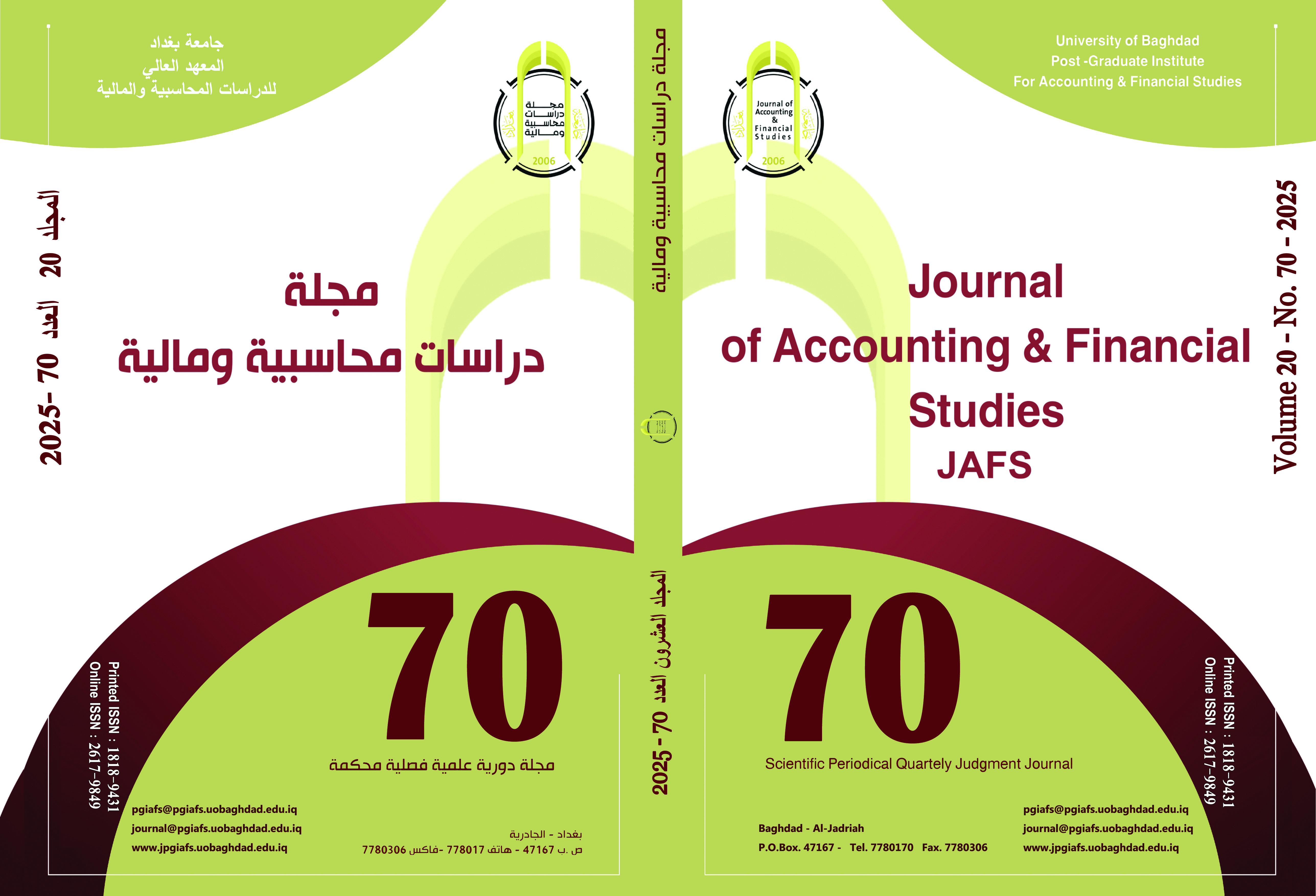Integrated reporting auditing according to GRI standards (300 & 400) and its reflection on audit procedures
DOI:
https://doi.org/10.34093/q5qfbk76Keywords:
Integrated reporting auditing based on GRI standards (300&400), Integrated reporting audit proceduresAbstract
The research aims to identify the concept of integrated reporting audit, present and discuss the conceptual aspects of integrated reporting audit according to the Global Reporting Initiative (GRI 300) and (GRI 400), test the application of integrated reporting audit according to the GRI 300 and (GRI 400) standards and their reflection on audit procedures in the municipality, and design proposed audit procedures.
The researcher reached a set of conclusions, the most important of which were: Auditing greatly affects the credibility of information related to integrated reporting, as economic units seek to reduce the discrepancy in information and agency costs, which enhances the credibility of information related to sustainability. Auditing non-financial information is considered an optional process, as it enjoys a great deal of flexibility, while auditing financial information is considered mandatory. The proposed audit procedures also contribute to enabling the auditor to detect and report violations and gaps. The information contained in his report is characterized by high quality, credibility and reliability, which meets reporting requirements and achieves an effective and efficient examination that serves the interests of stakeholders. The researcher recommended that Iraqi auditing offices and companies, along with the Federal Supreme Audit Bureau, should seek to provide professional qualification and practical training for their members. He urged auditors to adopt modern methods and approaches in auditing integrated reporting, and to benefit from international experiences in this field, which reveal social, environmental and economic information, which contributes to supporting stakeholders when making their investment decisions. It is also necessary to adopt the proposed audit procedures, which are implemented regularly and independently for multiple purposes, including internal auditing by a team of municipal employees, and external auditing by the body concerned with financial oversight of the municipality. These procedures should take into account international auditing standards and Global Reporting Initiative (GRI) standards, in addition to relevant laws and instructions.
Downloads
Published
Issue
Section
License
The copyright is transferred to the journal when the researcher is notified of the acceptance of his research submitted for publication in the journal.



